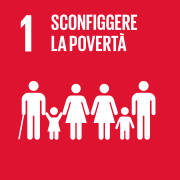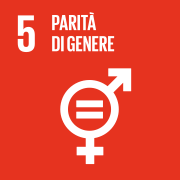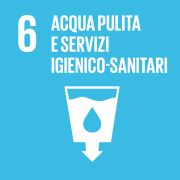
How familiar are Italian citizens with the concept of sustainability, and how do they perceive the main environmental – and other – problems we face? What importance do they attribute to technological tools in achieving sustainability goals? And above all, how does belonging to different generations influence their opinions? These are the questions answered by the Foundation for Digital Sustainability ‘s new survey entitled ‘Generations‘, which was presented to the public on 8 April on Digital Sustainability Day, the Foundation’s annual event.
What emerges from the Foundation’s analysis is a picture of apparent contradictions and ambivalences. And whether this is the result of a ‘digital unconscious’ that seems to be part of us by now – as punctually examined by Giuliano Castigliego in his article – or of a real crisis of awareness (not only among the ‘elderly’), we need to remedy it: to equip ourselves, all of us, with the tools – not only technological, but also cultural – necessary for the creation of a more sustainable future.
More specifically, the research – developed within the framework of the Foundation’sObservatory and based on theDiSI (Digital Sustainability Index) – examines generational differences in the perception of issues related to digital sustainability, comparing four generations of Italians: Generation Z (18-28 years), Millenial (29-44 years), Generation X (45-60 years) and Baby Boomer (61-75 years).
“Our aim was to understand how the relationship with digital changes according to age and what the challenges and opportunities are,” explained Stefano Epifani, President of the Foundation for Digital Sustainability. “The result is that there is no single digital transition, but different paths according to generations, each with its own peculiarities and criticalities. And with these, moreover, the numbers dispel some well-established beliefs about young people’s perception and point of view on sustainability and digitalisation‘.
For one in four young people, climate change is not a priority
Examining the level of knowledge of sustainability issues, and relating this to the ability to translate awareness into concrete action, the research shows a significant gap between younger and more ‘mature’ people. In detail, 22% of younger people say they are very familiar with the concept of sustainability, compared to only 8% of the more advanced generations. On the other hand, 34% of members of Generation Z say they know nothing about this topic at all, compared to 54% – i.e. more than one in two – of Baby Boomers.
However, at a deeper level, the scenario changes. In particular, when Italians are asked to give their opinion on a crucial issue such as climate change. One in four Italians (27%) think that, although it is a serious problem, it does not require immediate action. Although the greater sensitivity and awareness of young people on these issues is now commonplace, the results show that while 31% of Millennials and 27% of Generation Z think there is still time to take action on climate change, as many as 67% of the over-60s interviewed consider this issue an absolute priority. These data break the cliché that describes adults as less sensitive to environmental issues than young people.
Digital and sustainability: generational differences
Nevertheless, it is interesting to note that among Generation X and Baby Boomers, environmentalism is often accompanied by a strong distrust of the digital world. On the contrary, in Generation Z and the Millennials, those who are more sensitive to issues such as climate change and pollution show high rates of both sustainability and digitalisation.
These results appear to be broadly in line with the generational differences that emerged between the different profiles: young people – 48 per cent of Generation Z and 33 per cent of Millennials – are largely digital users and actively engaged in sustainability, to a greater extent than members of Generation X and Baby Boomers.
More digital skills for real transformation
However, it is important to emphasise, as has consistently emerged from the surveys carried out by the Foundation’s Observatory in recent years, that declaring one’s interest in sustainability is not enough to stimulate sustainable behaviour, especially when the degree of digital adoption is low. Even among Generation Z and the Millennials, people who use digital media extensively and are attentive to sustainability, there is in fact a low adoption of sustainable technologies, which hinders the implementation of concrete behaviour towards sustainability.
And this, as one can imagine, worsens with age, reaching almost zero levels in Generation X and Baby Boomers. All of this highlights how interest in sustainability, without specific digital support, loses its effectiveness, underlining the importance of developing digital skills for everyone in order to spread sustainable behaviour permanently. This is an absolutely necessary action, without which interest in sustainability risks remaining purely theoretical sensitivity, especially as people grow older.
















